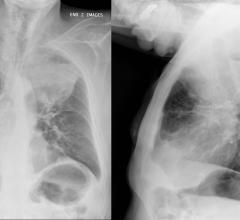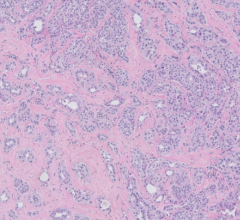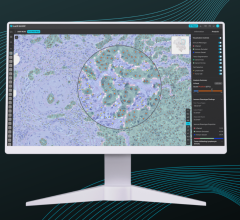In a paper published in the journal Nature Communications, University of California, San Diego School of Medicine researchers identified a pathway that causes the resistance and a new therapeutic drug that targets this pathway.
“It was previously known that RAF (a family of proteins that regulate cellular signaling) governs resistance to therapies. We discovered an undescribed role for RAF and learned precisely how it occurs in a broad range of cancers,” said lead author Sunil Advani, M.D., assistant professor in the Department of Radiation Medicine and Applied Sciences.
The pathway is used by tumor cells to protect DNA from damage. By inhibiting the pathway using a drug-like compound called KG5, researchers were able to reverse the resistance of tumors to both radiotherapy and certain classes of chemotherapies that induce genotoxic stress. The hope is to increase survival rates among patients with highly aggressive cancers, said Advani.
“We are taking the tumor’s defenses away by targeting this pathway. By developing this drug, we have the potential to enhance radiation sensitivity of cancer while sparing healthy tissue. This drug increases the DNA-damaging effects of radiation and certain chemotherapies,” said principal investigator David Cheresh, Ph.D., distinguished professor of pathology and associate director for Innovation and Industry Alliances at Moores Cancer Center at UC San Diego Health. “We essentially get more anti-tumor activity with less radiation or chemotherapeutic drug. This allows us to see the anti-tumor effect while reducing terrible side effects. We have seen this in pancreatic, brain and lung cancer cells both in cell culture and in tumors growing in mice.”
Radiation is the therapy of choice for certain cancers. In follow-up studies, researchers hope to enhance the design of KG5 to further improve its radio-sensitizing activity and safety profile so that it can be tested in patients.
“For patients with aggressive cancers, there may be no good options left,” said Advani. “Armed with this new approach, our goal is utilize such a drug to improve the clinical outcomes of some of the most widely used anti-cancer therapies.”
Co-authors of this study also include Maria Fernanda Camargo, Laetitia Seguin, Ainhoa Mielgo, Sudarshan Anand, Angel M. Hicks, Joseph Aguilera, Aleksandra Franovic, and Sara M. Weis of UC San Diego.
For more information: www.nature.com/ncomms/index.html


 April 18, 2024
April 18, 2024 








